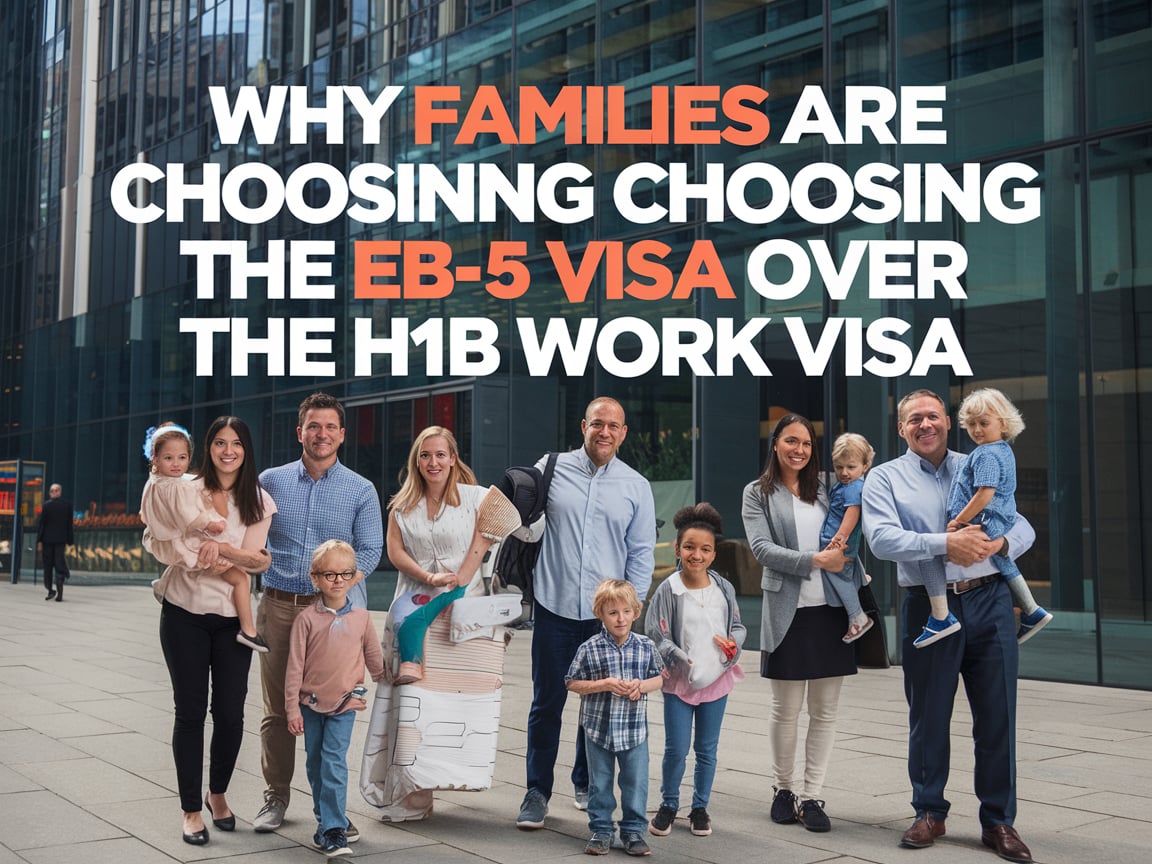In recent years, the EB-5 investor visa has emerged as a preferred choice for families looking to move to the United States, particularly when compared to the H1B work visa. This preference stems from several distinct advantages that the EB-5 program offers over the H1B visa, from the pathway to permanent residency to greater flexibility in employment and living options. Here’s a closer look at why families are increasingly opting for the EB-5 visa.
Guaranteed Path to Permanent Residency
The EB-5 visa program directly leads to permanent residency (Green Card) for the investor and their immediate family, including spouses and unmarried children under 21. This is a significant advantage over the H1B visa, which is a non-immigrant visa and does not directly lead to permanent residency. Families choosing EB-5 are looking for a stable, long-term solution without the uncertainty of visa renewals and potential changes in employment.
No Dependency on Employment
Unlike the H1B visa, which requires the holder to be employed by the sponsoring employer, the EB-5 visa does not tie the visa holder to any specific employer. This provides immense flexibility for the investor to manage their own business, change jobs, or even retire without affecting their visa status. This level of autonomy is highly valued by families who seek control over their professional and personal lives.
Education Benefits for Children
Children of EB-5 investors can attend school and universities in the U.S. at the same cost as U.S. residents, potentially saving families a significant amount on international tuition fees. This is a compelling benefit when compared to the H1B visa, where dependents have limited work and study options.
Expert advice and further insights into making this investment can be found through PaperFree’s EB-5 Consultant services.
No Annual Caps or Lottery System
The H1B visa is subject to annual caps and a highly competitive lottery system, making it uncertain and stressful for applicants. In contrast, the EB-5 visa does not have a lottery system and, while there are caps, the availability is generally more predictable and less competitive. This certainty is a crucial factor for families making long-term relocation plans.
Investment in the Future
Investing through the EB-5 program is not only an investment in the U.S. economy but also an investment in the family’s future. It offers a tangible asset that can appreciate over time, unlike the H1B visa, which is more of a temporary arrangement without direct investment benefits. Families looking to build a lasting legacy often find the EB-5 route more attractive.
Broader Eligibility and Less Bureaucracy
The eligibility criteria for the EB-5 visa are primarily financial, without the need for specific educational qualifications or job offers. This makes the application process less cumbersome compared to the H1B visa, which requires proof of specialized job skills and a specific job offer from a U.S. employer. The simpler, more straightforward requirements are appealing to families who may not meet the stringent conditions of the H1B program.
TAKEAWAY
The choice between the EB-5 and H1B visas often comes down to long-term goals and immediate family needs. For those looking for a permanent home in the U.S. with freedom in employment and education for children, the EB-5 visa offers a clear advantage. For more information on how to begin your journey with the EB-5 visa, visit PaperFree.com.



